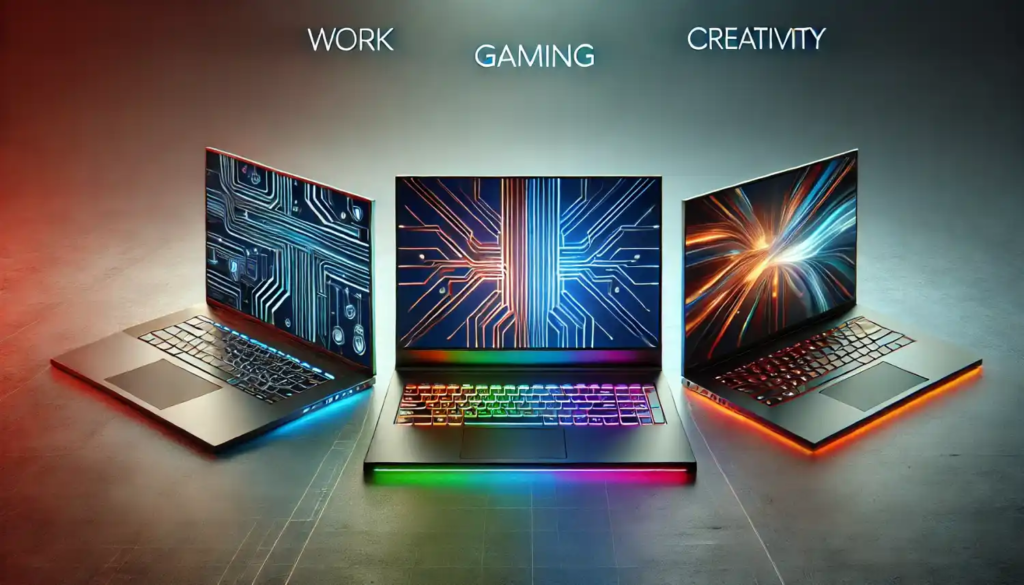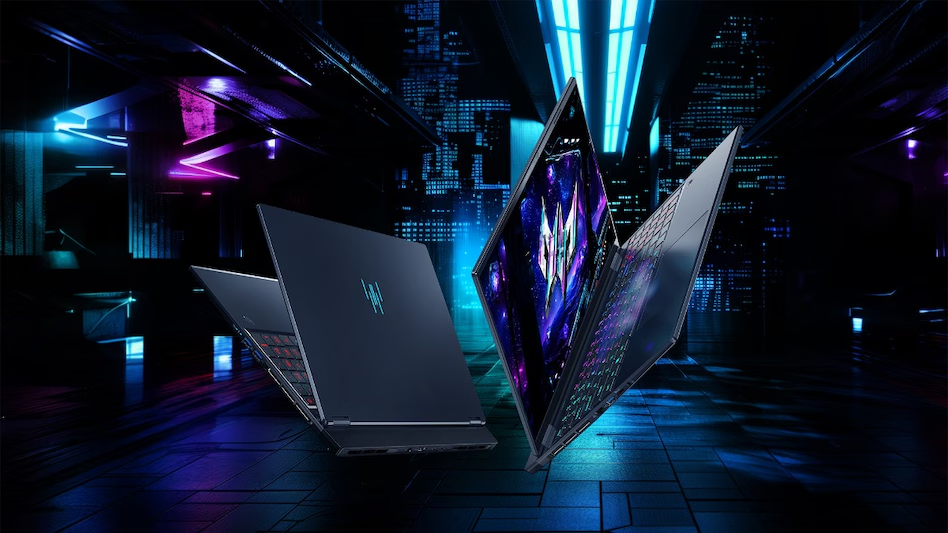The global PC market, which saw sharp declines in recent years, is set for a strong revival in 2025. A new wave of artificial intelligence (AI)-capable notebooks is expected to trigger a major refresh cycle. Industry leaders like Lenovo, HP, and Dell are likely to benefit significantly from this transformation.
According to market analysts and tech research firms, consumers and enterprises are showing growing interest in AI-integrated laptops that offer enhanced performance, productivity, and personalization. After a slowdown post-pandemic, this innovation-driven upgrade cycle is seen as the turning point the PC industry has been waiting for.
Source: IDC Global PC Market Forecast
AI-Powered Laptops Driving Consumer Demand
AI is no longer limited to servers or smartphones. With the arrival of on-device AI features like real-time language translation, smart summarization, productivity assistance, and adaptive power management, consumers are now looking to upgrade from their older machines.

New chipsets from Intel, AMD, and Qualcomm are enabling faster and more energy-efficient processing, which is crucial for running AI workloads locally on laptops. These AI PCs are being equipped with Neural Processing Units (NPUs) that allow them to manage tasks without sending data to the cloud, making them more secure and responsive.
Tech firms are betting big on this demand. Lenovo recently announced a new line of AI-ready ThinkPads, while HP and Dell are expected to launch competitive models by mid-2025. Analysts believe that by the end of next year, over 60% of premium laptops sold will have built-in AI capabilities.
Related: Lenovo AI Laptop Announcement
Corporate Buyers Leading the Refresh Cycle
While consumers are showing growing interest, it’s the enterprise sector that’s likely to drive the biggest part of this refresh wave. Many companies had postponed hardware upgrades during economic uncertainty, relying instead on aging laptops bought during the COVID-19 remote work surge.
With support for older operating systems and hardware gradually phasing out, CIOs are now re-evaluating their IT infrastructures. AI-powered laptops offer an opportunity to boost employee productivity and automate repetitive tasks, creating compelling reasons for companies to invest.
A recent report from Gartner predicts a 15% year-over-year growth in business laptop sales starting Q2 of 2025, with the largest demand coming from sectors like education, finance, and IT services.
See Gartner’s 2025 PC Forecast
Lenovo, HP, and Dell Poised for Growth
The three biggest beneficiaries of this shift are expected to be Lenovo, HP, and Dell — the traditional leaders in the PC market. These companies have already begun showcasing their AI-focused roadmaps.
Lenovo: The brand leads the market in global PC shipments and has partnered with Microsoft and Intel for AI features in its next-gen devices
HP: HP is focusing on hybrid work solutions with its AI Studio laptops, designed for collaboration and performance
Dell: Dell’s Latitude series is getting a major AI upgrade, tailored to enterprise users who need top-tier security and processing capabilities
Together, these brands hold a combined market share of over 60%, and all three have invested in AI R&D to stay ahead in the race.
Check: Dell’s AI-Optimized Laptops
AI PCs Could Revive a Flat Market
The global PC industry has struggled since the post-pandemic boom faded. Worldwide PC shipments dropped by over 15% in 2023 and showed only slight improvements in 2024. The main reason: people were simply not upgrading.
But with Windows 10 reaching end-of-life in October 2025, and Windows 11 demanding stricter hardware requirements, millions of older laptops will no longer receive updates. This gives both consumers and enterprises a practical reason to upgrade — especially if the new devices offer smart, AI-powered tools.

Manufacturers are also sweetening the deal with cloud integration, battery optimization, and eco-friendly designs in their upcoming models.
Challenges and Market Risks
Despite the positive outlook, some risks remain. High inflation and global economic instability could again slow down purchases, especially in emerging markets. In addition, not all users may immediately see the need for AI capabilities in their daily use, which could lead to slower adoption.
Security and privacy concerns with AI features are also under scrutiny. Brands will need to clearly explain how data is processed and stored locally, especially for enterprise buyers.
There’s also strong competition from Apple’s M-series MacBooks, which already offer AI-enhanced features and robust performance. Whether traditional PC makers can match or exceed that experience will influence market dynamics.
Final Outlook: A Comeback Year for the PC
2025 is shaping up to be a comeback year for the PC market, with AI acting as the catalyst for widespread upgrades. Whether it’s for work, creativity, or everyday use, AI notebooks are likely to offer a compelling upgrade path that users have been waiting for.
Lenovo, HP, and Dell are well-positioned to lead this change, supported by strategic partnerships, enterprise-ready features, and global reach. If predictions hold true, the industry could finally break out of its slump and enter a new phase of innovation-led growth.
Explore More: HP’s Vision for AI PCs
If you’re a business planning upgrades or a consumer waiting for the next big thing — 2025 might be the perfect year to buy a PC again.
Also Read – Microsoft Patches 66 Bugs Including Dangerous WEBDAV Zero-Day






